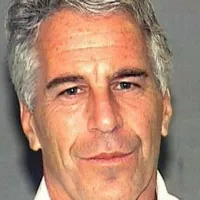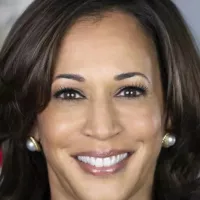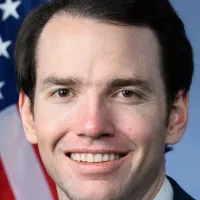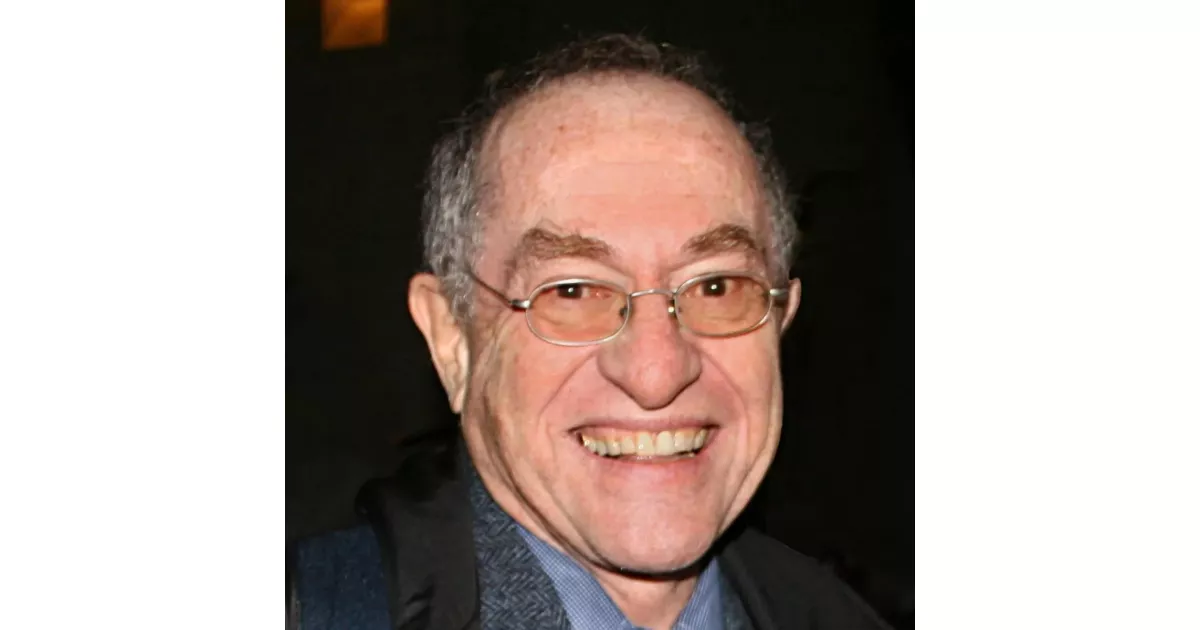Alan Dershowitz is an American lawyer and law professor, most notably at Harvard Law School from 1964 to 2013, becoming the Felix Frankfurter Professor of Law in 1993. He is known for his expertise in U.S. constitutional and criminal law. Dershowitz is a frequent media commentator, political analyst, and legal expert, often involved in high-profile cases and expressing his views on a range of legal and political topics.
September 1, 1938: Alan Dershowitz Born
On September 1, 1938, Alan Morton Dershowitz was born in Williamsburg, Brooklyn, New York.
1952: First Job at Deli Factory
In 1952, at age 14, Alan Dershowitz's first job was at a deli factory on Manhattan's Lower East Side.
1959: Graduated from Brooklyn College
In 1959, Alan Dershowitz graduated from Brooklyn College with a Bachelor of Arts, magna cum laude.
1959: Married Sue Barlach
In 1959, Alan Dershowitz married Sue Barlach, whom he described as an "Orthodox Jewish girl", after meeting her at a summer camp. Dershowitz was 20 and Barlach was 18.
1961: Elon Dershowitz Born
In 1961, Elon Dershowitz, son of Alan Dershowitz and Sue Barlach, was born. He later became a film producer.
1962: Law Clerk for Judge David L. Bazelon
From 1962 to 1963, Alan Dershowitz was a law clerk for Chief Judge David L. Bazelon of the U.S. Court of Appeals for the District of Columbia Circuit.
1962: Graduated from Yale Law School
In 1962, Alan Dershowitz graduated from Yale Law School, ranked first in his class with a Bachelor of Laws. He was also editor-in-chief of The Yale Law Journal.
1963: Continued Clerkship with Judge Bazelon
In 1963, Alan Dershowitz continued his role as a law clerk for Chief Judge David L. Bazelon of the U.S. Court of Appeals.
1963: Jamin Dershowitz Born
In 1963, Jamin Dershowitz, son of Alan Dershowitz and Sue Barlach, was born. He later became an attorney.
1963: Wrote Memo Against Death Penalty
In 1963, while a law clerk to Justice Arthur Goldberg, Alan Dershowitz wrote a memo arguing that the death penalty violated the Eighth Amendment. This memo was sent to the NAACP LDF and the ACLU, contributing to a campaign against the death penalty.
1964: Clerked for Justice Arthur Goldberg
From 1963 to 1964, Alan Dershowitz clerked for Justice Arthur Goldberg of the U.S. Supreme Court.
1964: Joined Harvard Law School
In 1964, Alan Dershowitz joined Harvard Law School as an assistant professor.
1967: Made Full Professor at Harvard Law School
In 1967, Alan Dershowitz was made a full professor at Harvard Law School at the age of 28.
1967: De Facto Moratorium on Executions Began
In 1967, following a campaign against the death penalty that included Dershowitz's 1963 memo, a de facto moratorium on executions began in the United States.
1972: Furman v. Georgia Supreme Court Case
In 1972, the Supreme Court case Furman v. Georgia, influenced by the campaign against the death penalty, found the death penalty as currently applied unconstitutional.
1973: Separated from Sue Barlach
In 1973, Alan Dershowitz separated from his first wife, Sue Barlach.
1976: Divorced Sue Barlach
In 1976, Alan Dershowitz divorced Sue Barlach. He later won full custody of their children.
1976: Successful appeal for Harry Reems
In 1976, Alan Dershowitz had a major legal victory with a successful appeal that overturned the conviction for Harry Reems.
1976: Gregg v. Georgia Supreme Court Case
In 1976, the Supreme Court case Gregg v. Georgia upheld numerous states' revised death penalty statutes.
1979: Named a Guggenheim Fellow
In 1979, Alan Dershowitz was named a Guggenheim Fellow.
1980: Represented Claus von Bülow
In 1980, Alan Dershowitz represented Claus von Bülow at his appeal for the attempted murder of his wife, Sunny von Bülow.
1983: Received William O. Douglas First Amendment Award
In 1983, Alan Dershowitz received the William O. Douglas First Amendment Award from the Anti-Defamation League for his work on civil rights.
December 31, 1983: Sue Barlach's Death
On December 31, 1983, Sue Barlach, Alan Dershowitz's first wife, died in the East River in an apparent suicide.
1984: Successful appeal for Claus von Bülow
In 1984, Alan Dershowitz had a major legal victory with a successful appeal that overturned the conviction for Claus von Bülow, who had been convicted of the attempted murder of his wife, Sunny.
1985: Published "Reversal of Fortune: Inside the von Bülow Case"
In 1985, Alan Dershowitz published "Reversal of Fortune: Inside the von Bülow Case", which became the basis for the 1990 film.
1985: Published 'Reversal of Fortune'
In 1985, Alan Dershowitz told the story of the case in his book Reversal of Fortune: Inside the von Bülow case.
1986: Married Carolyn Cohen
In 1986, Alan Dershowitz married Carolyn Cohen, a retired neuropsychologist.
August 1989: Glemp Speech
In August 1989, Cardinal Józef Glemp gave a speech referencing an incident at Auschwitz and making antisemitic remarks, which led to Dershowitz filing a defamation suit.
1990: Portrayal in Reversal of Fortune
In 1990, Alan Dershowitz was portrayed by Ron Silver in the film Reversal of Fortune.
1990: Ella Dershowitz Born
In 1990, Ella Dershowitz, daughter of Alan Dershowitz and Carolyn Cohen, was born. She later became an actress.
1990: 'Reversal of Fortune' movie released
In 1990, Reversal of Fortune: Inside the von Bülow case was adapted into a movie. Alan Dershowitz was played by actor Ron Silver, and Dershowitz himself had a cameo as a judge.
1991: Published "Chutzpah"
In 1991, Alan Dershowitz published his book "Chutzpah".
1991: Book "Chutzpah" Published
In 1991, Dershowitz's account of the lawsuit against Cardinal Józef Glemp appears in his book "Chutzpah".
1993: Appointed Felix Frankfurter Professor of Law
In 1993, Alan Dershowitz was appointed as the Felix Frankfurter Professor of Law at Harvard Law School.
1995: Appellate adviser on O.J. Simpson murder trial
In 1995, Alan Dershowitz served as the appellate adviser on the murder trial of O. J. Simpson as part of the legal "Dream Team".
1996: Book Published About O. J. Simpson Case
In 1996, Alan Dershowitz published a book about the O. J. Simpson case, titled Reasonable Doubts: The Criminal Justice System and the O. J. Simpson Case.
1996: Published "Reasonable Doubts: The Criminal Justice System and the O. J. Simpson Case"
In 1996, Alan Dershowitz published his book "Reasonable Doubts: The Criminal Justice System and the O. J. Simpson Case".
March 2002: Published "New Response to Palestinian Terrorism"
In March 2002, Alan Dershowitz published an article in The Jerusalem Post titled "New Response to Palestinian Terrorism," proposing that Israel announce a unilateral cessation in retaliation, followed by a clear declaration of actions to be taken in response to future acts of terrorism, such as destroying a village used as a base for terrorist operations. This proposal drew criticism for potentially violating international law and being morally comparable to Nazi actions.
2002: Petition and Debate at Harvard
In the spring of 2002, after a petition calling for Harvard and MIT to divest from Israeli and American companies that sell arms to Israel garnered over 600 signatures, Dershowitz staged a debate for 200 students, calling the signatories antisemitic bigots and criticizing Harvard's Winthrop House Master Paul D. Hanson. He also threatened to sue professors opposing tenure based on candidates' positions on Israel.
2003: Published "The Case for Israel"
In 2003, Alan Dershowitz published his book "The Case for Israel".
2003: Plagiarism Allegations Regarding 'The Case for Israel'
Shortly after the publication of Alan Dershowitz's book 'The Case for Israel' in 2003, Norman Finkelstein accused it of containing material plagiarized from Joan Peters' book 'From Time Immemorial'. Dershowitz denied the allegation, and Harvard's president determined that no plagiarism had occurred, though Los Angeles attorney Frank Menetrez supported Finkelstein's charges.
2004: Published 'Rights from Wrongs'
In 2004, Alan Dershowitz published 'Rights from Wrongs: A Secular Theory of the Origins of Rights', where he discussed the concept of speciesism and the responsibility humans have to treat animals fairly.
January 2005: Khamenei urged Iranian Military to have Nuclear Bombs
In January 2005, according to Dershowitz's 2015 book, The Case Against the Iran Deal, the Supreme Leader of Iran, Ali Khamenei, had urged the Iranian military "to have two nuclear bombs ready to go off or you're not Muslims".
2005: Published "The Case for Peace"
In 2005, Alan Dershowitz published his book "The Case for Peace".
2005: Obama Meeting with Louis Farrakhan
In 2005, Barack Obama met with Nation of Islam leader Louis Farrakhan at a Congressional Black Caucus meeting, a photo of which later caused Alan Dershowitz to regret campaigning for Obama in 2018.
March 2006: Response to "The Israel Lobby and U.S. Foreign Policy"
In March 2006, after John Mearsheimer and Stephen Walt published "The Israel Lobby and U.S. Foreign Policy", Alan Dershowitz criticized the paper, calling its authors "liars" and "bigots". He suggested the paper had been derived from hate sites.
May 2006: Mearsheimer and Walt Denied Using Racist Sources
In May 2006, Mearsheimer and Walt denied that they had used any racist sources for their article "The Israel Lobby and U.S. Foreign Policy", writing that Dershowitz had failed to offer any evidence to support his claim.
July 2006: Defended IDF Conduct During Israel-Lebanon Conflict
In July 2006, Alan Dershowitz wrote a series of articles defending the Israel Defense Forces' conduct during the 2006 Israel–Lebanon conflict. He criticized UN High Commissioner for Human Rights Louise Arbour for suggesting that Israeli officials might be investigated for war crimes, and argued that Israel was not to blame for civilian deaths.
October 2006: Lobbied Against Finkelstein's Tenure
In October 2006, Alan Dershowitz wrote to DePaul University faculty members to lobby against Norman Finkelstein's application for tenure, accusing Finkelstein of academic dishonesty.
2006: Argued for Prosecution of Iranian President
In 2006, Alan Dershowitz argued for the prosecution of Iranian president Mahmoud Ahmedinejad for incitement to genocide based on his threat of "wiping Israel off the map".
2006: Negotiated non-prosecution agreement for Jeffrey Epstein
In 2006, Alan Dershowitz helped negotiate a non-prosecution agreement on Jeffrey Epstein's behalf.
2006: Publication of Palestine: Peace Not Apartheid
In 2006, former U.S. President Jimmy Carter published his book Palestine: Peace Not Apartheid. In it, he argues that Israel's control of Palestinian land is the primary obstacle to peace.
January 2007: Responded to Jimmy Carter
In January 2007, Alan Dershowitz was invited to respond to Jimmy Carter's address at Brandeis University on the same stage only after Carter had left.
June 2007: Finkelstein Denied Tenure
In June 2007, DePaul University denied Norman Finkelstein tenure.
November 2007: Awarded the Soviet Jewry Freedom Award
In November 2007, Alan Dershowitz was awarded the Soviet Jewry Freedom Award by the Russian Jewish Community Foundation.
June 30, 2008: Epstein sentenced
On June 30, 2008, after Jeffrey Epstein pleaded guilty to a state charge of procuring for prostitution a girl below age 18, he was sentenced to 18 months in prison.
2008: Endorsed Hillary Clinton
During the 2008 Democratic Party primaries, Alan Dershowitz endorsed Hillary Clinton, praising her as a progressive on social issues, a realist on foreign policy, and a pragmatist on the economy.
2008: Giuffre's affidavit included in lawsuit against Justice Department
In 2008, Virginia Giuffre's affidavit was included in a lawsuit filed on behalf of women who claimed they were sexually abused by Jeffrey Epstein. The lawsuit accused the Justice Department of violating the Crime Victims Rights Act by entering into a plea agreement with Epstein.
2008: Lawsuit seeking to reopen Epstein's case
In 2008, a lawsuit sought to reopen Epstein's case. The allegations against Dershowitz were removed from the record in April 2015 as having no bearing on the 2008 lawsuit.
2008: Sunny von Bülow died
Sunny von Bülow, whose attempted murder her husband Claus von Bülow was convicted of, passed away in 2008. Alan Dershowitz represented Claus von Bülow and succeeded in having the conviction overturned, and von Bülow was acquitted in a retrial.
April 2009: Participated in Doha Debates
In April 2009, Alan Dershowitz took part in the Doha Debates at Georgetown University, where he spoke against the motion "this House believes it's time for the US to get tough on Israel."
2009: Won 13 of 15 murder and attempted murder cases
As of 2009, Alan Dershowitz had won 13 of the 15 murder and attempted murder cases he handled as a criminal appellate lawyer.
December 2011: Awarded the Menachem Begin Award of Honor
In December 2011, Alan Dershowitz was awarded the Menachem Begin Award of Honor by the Menachem Begin Heritage Center at an event co-sponsored by NGO Monitor.
2011: Consultant for Julian Assange's legal team
In 2011, Alan Dershowitz served as a consultant for Julian Assange's legal team.
February 29, 2012: Amicus Brief Filed in Support of MEK
On February 29, 2012, Alan Dershowitz filed an amicus brief in support of delisting the People's Mujahedin of Iran (MEK) from the State Department list of foreign terrorist organizations.
2012: Supported Barack Obama's Reelection
In 2012, Alan Dershowitz strongly supported Barack Obama's reelection, citing his judicial appointments, foreign policy, and improvements to the economy.
2013: Retired from Harvard Law
In 2013, Alan Dershowitz retired from teaching at Harvard Law School.
December 30, 2014: Giuffre alleges sexual trafficking by Epstein and Dershowitz
On December 30, 2014, in a Florida court filing, Virginia Giuffre alleged that she was sexually trafficked by Jeffrey Epstein, who lent her to people for sex, including Alan Dershowitz and Prince Andrew. The motion claimed that Dershowitz was also an eyewitness to the sexual abuse of other minors.
January 2015: Dershowitz denies allegations and seeks disbarment
In the week after the release of Giuffre's affidavit in January 2015, Dershowitz denied the allegations of sexual misconduct and sought the disbarment of the lawyers filing the suit. During that same week in January 2015, Giuffre's lawyers sued Dershowitz for defamation.
April 2015: Allegations against Dershowitz removed from record
By early April 2015, U.S. District Court Judge Kenneth Marra had the allegations against Dershowitz and Prince Andrew removed from the record as having no bearing on the 2008 lawsuit seeking to reopen Epstein's case.
2015: Involvement in defamation lawsuits
Beginning in 2015, Alan Dershowitz became embroiled in a series of defamation lawsuits and countersuits stemming from allegations of sexual misconduct.
2015: Authored 'The Case Against the Iran Deal'
In 2015, Alan Dershowitz's book, The Case Against the Iran Deal, argued that the Supreme Leader of Iran, Ali Khamenei, had urged the Iranian military "to have two nuclear bombs ready to go off in January 2005 or you're not Muslims".
April 2016: Settlement of countersuit
By April 2016, Dershowitz and Giuffre's lawyers settled Dershowitz's countersuit for an undisclosed sum.
October 2016: Compared Trump unfavorably to Clinton
In October 2016, Alan Dershowitz said there's no comparison between who has engaged in more corruption and who is more likely to continue that if elected President of the United States, comparing Trump unfavorably to Hillary Clinton.
2016: Portrayal in The People v. O. J. Simpson
In 2016, Alan Dershowitz was portrayed by Evan Handler in the television series The People v. O. J. Simpson: American Crime Story.
2016: Commented on Russian Meddling in Election
In January 2018, Alan Dershowitz claimed that "collusion" in reference to Russian meddling in the 2016 election is not a crime.
January 2018: Commented on Trump Investigations
In January 2018, Alan Dershowitz said that attacking Trump's mental fitness was "very dangerous" and that there was "no case" that Trump committed obstruction of justice by firing former FBI Director James Comey. He also called the indictment of Michael Flynn the strangest he had ever seen and claimed that "collusion" in reference to Russian meddling in the 2016 election is not a crime.
January 2018: Questioned claims about Qatar funding terrorists
In January 2018, Alan Dershowitz, who had a contract to provide advice to a lobbyist working for the Qatari government, questioned claims that Qatar funds terrorist groups.
May 2018: Joined Harvey Weinstein's legal team as consultant
In May 2018, Alan Dershowitz joined Harvey Weinstein's legal team as a consultant for Weinstein's lawyer Benjamin Brafman.
June 2018: Criticized ACLU
In June 2018, Alan Dershowitz wrote an op-ed criticizing the American Civil Liberties Union, alleging it had become a hyper-partisan organization. He also criticized Trump, writing that by denying fundamental civil liberties, he was also to blame for pushing the ACLU further into partisan politics.
2018: Published "The Case Against Impeaching Trump"
In 2018, Alan Dershowitz published his book "The Case Against Impeaching Trump".
2018: Member of Harvey Weinstein's defense team
In 2018, Alan Dershowitz was a member of Harvey Weinstein's defense team.
2018: Expressed Regret Over Obama Support
In 2018, after a photo with Obama and Nation of Islam leader Louis Farrakhan at a 2005 meeting emerged, Alan Dershowitz said he would not have campaigned for Obama had the photo been publicized sooner.
February 2019: Ruling on Crime Victims Rights Act violation
In February 2019, Judge Marra ruled that prosecutors had violated the Crime Victims Rights Act.
April 2019: Giuffre files defamation lawsuit against Dershowitz
In April 2019, Virginia Giuffre filed a defamation lawsuit in the Southern District of New York against Alan Dershowitz, alleging he had made "false and malicious defamatory statements" about her, such as accusing her of perjury. The lawsuit sought punitive damages and repeated previous claims that Epstein sex-trafficked Giuffre to Dershowitz.
June 2019: Motions filed in Giuffre's lawsuit
In June 2019, Alan Dershowitz filed a motion to dismiss Giuffre's suit (which was later denied) and a motion to disqualify David Boies's firm from representing her (which was later approved).
November 2019: Dershowitz files countersuit and Boies sues Dershowitz
In November 2019, Alan Dershowitz filed a countersuit against Giuffre and accused Boies of pressuring Giuffre to provide false testimony, in response to which Boies sued Dershowitz in November 2019 for defamation. In this November 2019 lawsuit, Dershowitz alleged that Giuffre falsely labeled him as a child rapist and molester.
2019: Appearance in documentary No Safe Spaces
In 2019, Alan Dershowitz appeared as himself in the documentary No Safe Spaces.
2019: Published "Guilt by Accusation: The Challenge of Proving Innocence in the Age of #MeToo"
In 2019, Alan Dershowitz published "Guilt by Accusation: The Challenge of Proving Innocence in the Age of #MeToo".
2019: Expressed Support for Joe Biden
In 2019, Alan Dershowitz said he would "enthusiastically support Joe Biden" for president.
2019: Litigation between Giuffre and Dershowitz
In 2019, litigation was filed by Giuffre and Dershowitz against each other for defamation in federal court in New York.
January 2020: Joined Trump's Impeachment Defense Team
In January 2020, Alan Dershowitz joined President Donald Trump's legal team as Trump was being tried on impeachment charges in the Senate. He stated he would not accept any compensation and would donate it to charity if paid.
January 26, 2020: Portrayal on Saturday Night Live
On January 26, 2020, Jon Lovitz played Alan Dershowitz on Saturday Night Live. In the episode, Dershowitz ends up in Hell during a near-death experience, where he encounters Jeffrey Epstein.
May 2020: Giuffre repeats allegations in Netflix series
In May 2020, Virginia Giuffre repeated her allegations on camera as part of the Netflix series Jeffrey Epstein: Filthy Rich, stating that Epstein had trafficked her to Alan Dershowitz for sex at least six times. In response, Dershowitz repeated his denial of Giuffre's account and accused her of selling false allegations to news outlets.
July 31, 2020: Dershowitz denies meeting Giuffre
In a July 31, 2020, interview, Alan Dershowitz stated, "I never met her. I never saw her," referring to Virginia Giuffre.
2020: Member of Donald Trump's defense team
In 2020, Alan Dershowitz was a member of President Donald Trump's defense team in his first impeachment trial.
2020: Endorsed Joe Biden, Criticized Bernie Sanders
In the 2020 Democratic Party primaries, Alan Dershowitz endorsed Joe Biden, expressing strong support. He criticized Bernie Sanders for campaigning for Jeremy Corbyn.
May 2021: Dershowitz sues Netflix and producers of documentary
In May 2021, Alan Dershowitz filed a defamation lawsuit in U.S. Federal District Court in Miami against Netflix and the producers of Jeffery Epstein: Filthy Rich, in addition to the 2019 litigation filed by Giuffre and Dershowitz against each other for defamation in federal court in New York.
2021: Commented on Trump's Rally and Potential Defense
In 2021, Alan Dershowitz said that Trump's rally preceding the 2021 storming of the United States Capitol was "constitutionally protected" speech. He offered to defend Trump in a trial.
2022: Settlement of lawsuits
In 2022, Giuffre, Dershowitz and Boies jointly announced that they had settled their respective lawsuits. Giuffre said that she realized that her identification of Dershowitz might have been a mistake. Dershowitz said that his assertion that Boies had engaged in an extortion plot and in suborning perjury was mistaken.
February 2024: Signed Jewish Future Promise
In February 2024, Alan Dershowitz signed the Jewish Future Promise.
September 2024: Renounced Democratic Party
In September 2024, Alan Dershowitz renounced the Democratic Party and became an Independent.
Mentioned in this timeline

Donald John Trump is an American politician media personality and...

Barack Obama the th U S President - was the...

Hillary Diane Rodham Clinton is an American politician lawyer and...

Jeffrey Epstein was an American financier and convicted sex offender...

Joe Biden a member of the Democratic Party served as...

Kamala Devi Harris is an American politician and attorney notable...
Trending

10 months ago Hugh Grant's forgotten Bram Stoker adaptation explored: A weird cinematic journey.

10 months ago Kevin Kiley faces constituent pressure, hosts virtual town hall after criticism.
Lucinda Williams is an acclaimed American singer-songwriter and guitarist known for her slow deliberate work and the critical praise her...
8 months ago Savannah Guthrie and Craig Melvin Temporarily Replaced on Today Show: Here's Why
3 months ago UPS Driver Dies After Train Collision in Hunt County, North Texas

7 months ago Molly Qerim departs ESPN's First Take, shares reason, and flaunts NBA style on social media.
Popular

Thomas Douglas Homan is an American law enforcement officer who...

Martin Luther King Jr was a pivotal leader in the...

XXXTentacion born Jahseh Dwayne Ricardo Onfroy was a controversial yet...

Instagram is a photo and video-sharing social networking service owned...

Jupiter is the fifth and largest planet from the Sun...

KFC or Kentucky Fried Chicken is an American fast-food chain...
